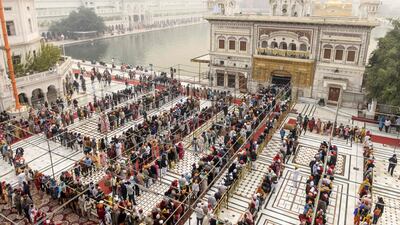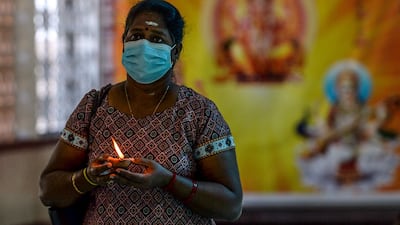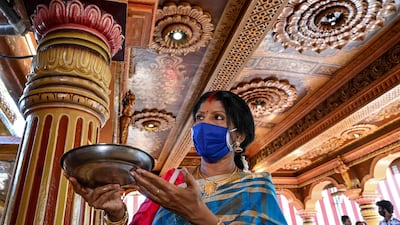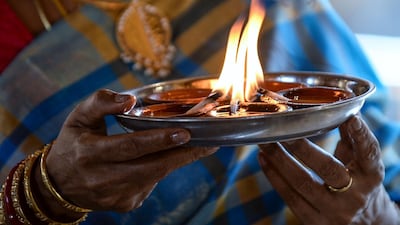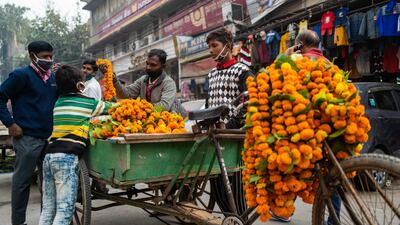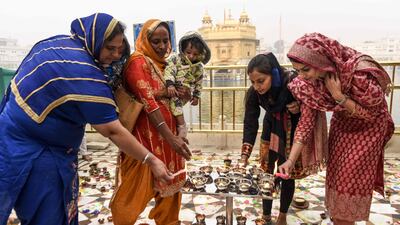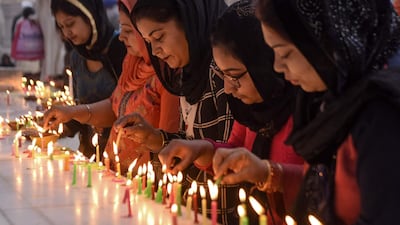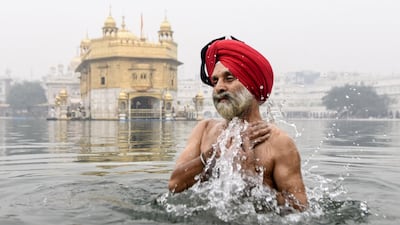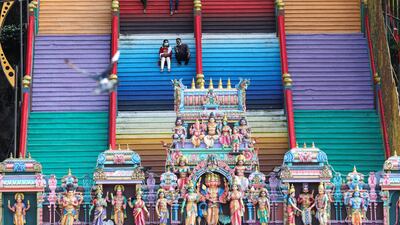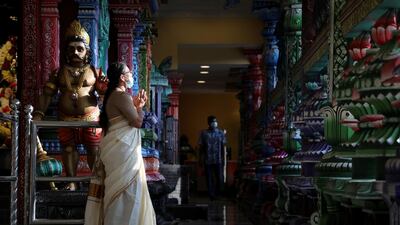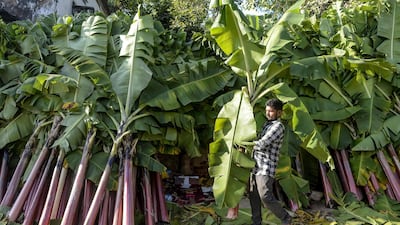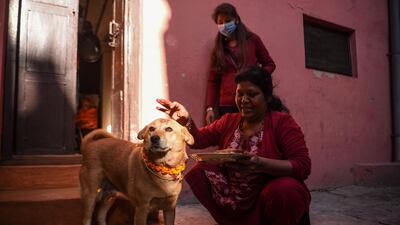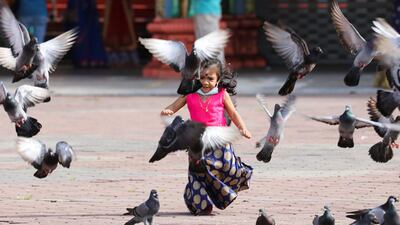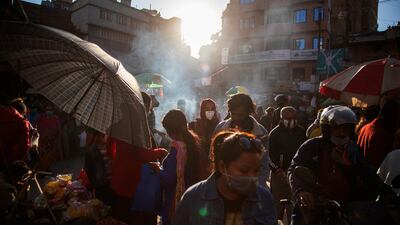Every year, Rajesh Negi hired a dozen temporary workers to handle the throngs of customers that come to his shop to buy kitchenware on the eve of Diwali – a major Hindu festival.
But this year’s festivities are dampened by the Covid-19 pandemic and so too is business.
“I can actually count the number of customers on my fingertips,” said Mr Negi, who runs a multi-floor family shop in a densely populated area of south Delhi.
“There is hardly 15 to 25 per cent sales [compared with previous years]. Coronavirus has ruined everything,” he said.
Diwali – the five-day festival of lights that started Saturday – is the most important holiday in the country and is celebrated with elaborate feasts, huge parties, firecracker displays and countrywide mass shopping spree.
But the mood this year is subdued because of anxiety surrounding the raging pandemic that has infected nearly 8.8 million people and claimed 1,29,000 lives in India.
Mr Negi not only rues the financial losses, but also the cultural and social havoc it has caused on festivities.
“There is no plan for celebrations or to socialise. Normally, this was the time to reconnect with friends and relatives, but no one wants to take a risk,” he said.
India imposed the world’s biggest months-long lockdown at the beginning of the pandemic in March before gradually relaxing all restrictions on gatherings and public movement but still advised social distancing and the use of masks.
But that has not lured many people to the streets to mark the festival that is associated with wealth and prosperity.
Most markets in cities across the country were forlorn, seeing half the usual footfall that would mark the festival season.
Diwali has traditionally been a boom time for business and the economy as millions splurge on cars, gold jewellery, home appliances and clothes. But the economic distress caused by the pandemic has changed these age-old shopping traditions.
Gold sales that top around the festival season were down by 30 to 35 per cent, including on the Dhanteras Day, an auspicious day for Hindus to buy metals products before Diwali, the All India Gem and Jewellery Domestic Council reported.
Even car sales in October were down by 8.8 per cent and motorbikes by 26.8 per cent from a year ago, one of the biggest indicators of consumer liquidity, the Federation of Automobile Dealers Association said.
India’s Gross Domestic Product contracted almost 24 per cent in the first quarter of 2020 following the strict lockdown that shattered its economy and caused job losses.
Coronavirus around the world – in pictures
The Central Bank this week predicted that the economy will further shrink 8.6 per cent in the second quarter, pushing the country into a “technical recession”.
Prime Minister Narendra Modi’s government has announced stimulus packages worth billions of dollars in a bid to rescue the faltering economy.
But many continue to suffer financial distress.
Robin Gupta lost his three-year-old managerial job in June after a Delhi-based marketing firm suddenly closed its business, leaving the 37-year-old to survive on fast depleting savings.
“I used to spend around 100,000 rupees ($1,350) on buying clothes, gifts and products around the festival time,” Mr Gupta told The National.
“But because of the uncertainty, I just spent like 10 per cent,” he said. “The pandemic has dealt a double whammy … There is no economic certainty and then there is always the fear of contracting the disease.”
In New Delhi, that has witnessed a sharp spike in the number of cases before the festive season, authorities were using megaphones in public places to urge people to use masks and maintain social distance.
The city government has warned a further spike as it struggles with the third wave of infections. This week alone there has been more than 500 deaths and nearly 50,000 cases.
For Mukul Arora, 36, a new father, this year’s Diwali has been isolated.
Six members of his family, including his elderly parents and two nieces, have contracted the infection.
"Diwali was the time when the entire family would meet and celebrate together, but this year I have decided to stay at home because I have a one-year-old son and I cannot take any risk,” Mr Arora told The National.
Every year, Delhi sees a spike in air pollution with millions of highly polluting firecrackers traditionally set off to mark the festival. It produces thousands of tons of toxic gas.
Doctors have warned that additional air pollution from firecrackers could lead to an increase in the number of Covid-19 cases, particularly because it could expose vulnerable people with underlying health conditions to the dust that could act as a carrier for coronavirus.
India’s environmental court last week stepped-in and imposed a ban on firecrackers in Delhi and adjoining areas, stating that they cannot be used to “celebrate deaths and diseases".
Several other states have followed the suit and banned firecrackers or restricted their use.
Despite a ban, people violated the order by bursting firecrackers. In capital Delhi and adjoining areas, the air quality plunged to hazardous category. In some places, the AQI touched 999 marked – the maximum levels.
But many see the ban as another dampener in the already sombre festival.
"Firecrackers have been a hallmark for Diwali for me since childhood but because of the looming threat of the pandemic, even that has affected this year's celebration," Mr Arora added.
